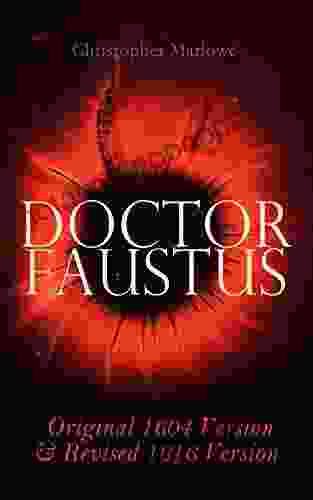Doctor Faustus Original 1604 Version & Revised 1616 Version: An Unforgettable Literary Journey

Prepare yourself for an extraordinary literary journey as we delve into the captivating world of Doctor Faustus, a timeless masterpiece by renowned playwright Christopher Marlowe. Originally published in 1604, this play has captivated audiences for centuries with its poignant tale of a man who trades his soul for knowledge and power. 4 out of 5 In this comprehensive article, we will explore both the original 1604 version and the revised 1616 version of Doctor Faustus. We will examine the play's literary significance, engaging characters, and historical context to provide a multifaceted understanding of this enduring classic. The original 1604 version of Doctor Faustus marked a significant departure from traditional morality plays and laid the foundation for the development of English Renaissance drama. This version presents a powerful and complex protagonist in Faustus, a brilliant scholar who is driven by an insatiable thirst for knowledge. Faustus's desperation leads him to make a pact with the devil, Mephistopheles, exchanging his soul for twenty-four years of unlimited knowledge and power. The 1604 version offers a gripping exploration of the human condition, delving into themes of ambition, temptation, and the consequences of sin. Its vivid language and memorable characters have made it a beloved work among literature enthusiasts. In 1616, a revised version of Doctor Faustus was published, incorporating several significant changes. These revisions aimed to enhance the play's dramatic impact and clarify certain plot elements. The most notable addition in the 1616 version is the "Helen of Troy" scene, in which Faustus summons the legendary beauty to entertain him. This scene adds a layer of spectacle and romance to the play, further showcasing Faustus's insatiable desires. Other revisions include the expansion of certain scenes, such as the opening scene in which Faustus's scholarly pursuits are introduced. These changes provide a more detailed portrayal of the characters and their motivations. Doctor Faustus has enduring literary significance, transcending its time period to resonate with readers and audiences across generations. The play's themes of ambition and the pursuit of knowledge continue to captivate us. Faustus's tragic downfall serves as a cautionary tale about the dangers of hubris and the importance of moral boundaries. Moreover, Doctor Faustus explores the complex nature of good and evil. Mephistopheles, the embodiment of evil, is a compelling character who challenges Faustus's beliefs and tempts him with worldly pleasures. Through this character, Marlowe explores the duality of human nature and the constant struggle between virtue and vice. Doctor Faustus boasts a cast of unforgettable characters who bring the play's themes and conflicts to life. Faustus: The titular protagonist, Faustus is a brilliant scholar who is consumed by a thirst for knowledge and power. His ambition leads him to make a pact with the devil, setting in motion a tragic chain of events. Mephistopheles: The devil himself, Mephistopheles is a cunning and manipulative character who tempts Faustus with worldly pleasures. He represents the forces of evil and challenges Faustus's faith. Wagner: Faustus's servant, Wagner is a comic character who provides a contrast to his master's tragic fate. He represents the common man and the dangers of excessive knowledge. These characters, along with a host of supporting roles, create a dynamic and engaging cast that drives the play's plot and explores its complex themes. To fully appreciate Doctor Faustus, it is essential to understand the historical context in which it was written. The play was written during the Elizabethan era, a time of significant cultural and religious change. The Protestant Reformation had challenged the authority of the Catholic Church, and new ideas about science and reason were emerging. Doctor Faustus reflects these intellectual and spiritual tensions. Faustus's quest for knowledge can be seen as a metaphor for the Renaissance spirit of exploration and discovery. However, the play also warns against the dangers of hubris and the importance of moral boundaries. Doctor Faustus, in both its original 1604 version and the revised 1616 version, remains a compelling and thought-provoking masterpiece of English literature. Its timeless themes, engaging characters, and historical significance have ensured its enduring legacy. Whether you are a student of literature, a theater enthusiast, or simply a lover of great storytelling, this play is a must-read. Immerse yourself in the world of Doctor Faustus and embark on a literary journey that will stay with you long after the final curtain falls.Embark on a Literary Adventure with Doctor Faustus
Language : English File size : 1229 KB Text-to-Speech : Enabled Enhanced typesetting : Enabled Print length : 181 pages Screen Reader : Supported X-Ray for textbooks : Enabled Original 1604 Version: The Genesis of a Literary Masterpiece
Revised 1616 Version: Refining a Literary Gem
Literary Significance: A Timeless Exploration of Human Nature
Engaging Characters: A Cast of Unforgettable Personalities
Historical Context: A Reflection of Elizabethan England
: A Literary Legacy that Endures
Delve into the captivating realm of Doctor Faustus with the Original 1604 Version & Revised 1616 Version. This literary treasure offers a profound exploration of ambition, temptation, and the human condition.
4 out of 5
| Language | : | English |
| File size | : | 1229 KB |
| Text-to-Speech | : | Enabled |
| Enhanced typesetting | : | Enabled |
| Print length | : | 181 pages |
| Screen Reader | : | Supported |
| X-Ray for textbooks | : | Enabled |
Do you want to contribute by writing guest posts on this blog?
Please contact us and send us a resume of previous articles that you have written.
 Book
Book Novel
Novel Page
Page Chapter
Chapter Text
Text Story
Story Genre
Genre Reader
Reader Library
Library Paperback
Paperback E-book
E-book Magazine
Magazine Newspaper
Newspaper Paragraph
Paragraph Sentence
Sentence Bookmark
Bookmark Shelf
Shelf Glossary
Glossary Bibliography
Bibliography Foreword
Foreword Preface
Preface Synopsis
Synopsis Annotation
Annotation Footnote
Footnote Manuscript
Manuscript Scroll
Scroll Codex
Codex Tome
Tome Bestseller
Bestseller Classics
Classics Library card
Library card Narrative
Narrative Biography
Biography Autobiography
Autobiography Memoir
Memoir Reference
Reference Encyclopedia
Encyclopedia Haleh Liza Gafori
Haleh Liza Gafori Neil Foley
Neil Foley Christen Haden
Christen Haden Chuck Barrett
Chuck Barrett Clarisse A Jordan
Clarisse A Jordan Chigozie Anuli Mbadugha
Chigozie Anuli Mbadugha Matt King
Matt King Christina Funera
Christina Funera Christos Georgalas
Christos Georgalas Chigozie Obioma
Chigozie Obioma Chris Taylor
Chris Taylor Christopher Hepworth
Christopher Hepworth G Balachandran
G Balachandran Kate Thompson
Kate Thompson Christopher Yost
Christopher Yost Chris Mclaughlin
Chris Mclaughlin Kami Garcia
Kami Garcia Christopher J Bosso
Christopher J Bosso Mia Caldwell
Mia Caldwell Chris Malone
Chris Malone
Light bulbAdvertise smarter! Our strategic ad space ensures maximum exposure. Reserve your spot today!
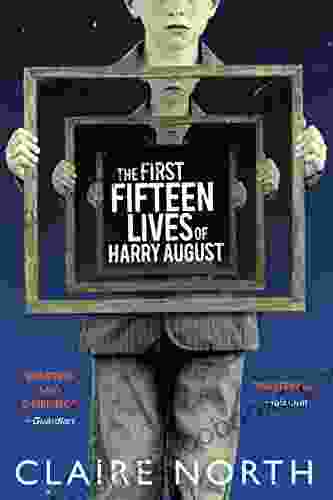
 Sammy PowellUncover the Enigma of Time and Reincarnation in "The First Fifteen Lives of...
Sammy PowellUncover the Enigma of Time and Reincarnation in "The First Fifteen Lives of...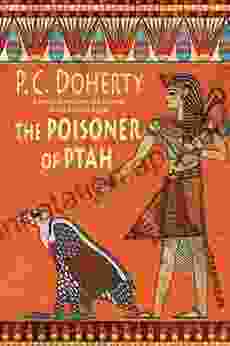
 Connor MitchellUnravel the Enigmatic Murders in "The Poisoner of Ptah": A Journey Through...
Connor MitchellUnravel the Enigmatic Murders in "The Poisoner of Ptah": A Journey Through...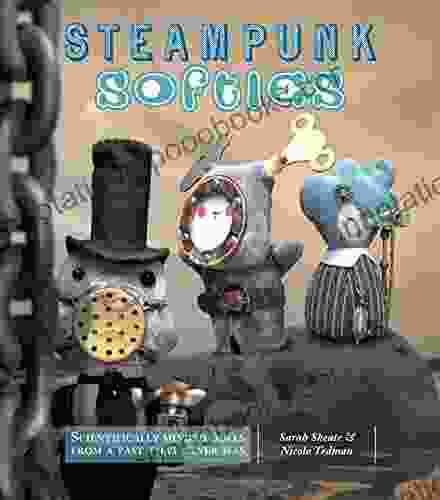
 Juan RulfoScientifically Minded Dolls From Past That Never Was: Unveiling the Enigmatic...
Juan RulfoScientifically Minded Dolls From Past That Never Was: Unveiling the Enigmatic... John UpdikeFollow ·14.5k
John UpdikeFollow ·14.5k Nathaniel HawthorneFollow ·4k
Nathaniel HawthorneFollow ·4k Junot DíazFollow ·16.3k
Junot DíazFollow ·16.3k Austin FordFollow ·10.6k
Austin FordFollow ·10.6k Ignacio HayesFollow ·3.6k
Ignacio HayesFollow ·3.6k Kyle PowellFollow ·18.3k
Kyle PowellFollow ·18.3k George HayesFollow ·8.7k
George HayesFollow ·8.7k Chadwick PowellFollow ·19.2k
Chadwick PowellFollow ·19.2k

 Kevin Turner
Kevin TurnerDive into the Enchanting World of "Crazy Like Fox": A...
Prepare yourself for a literary adventure...
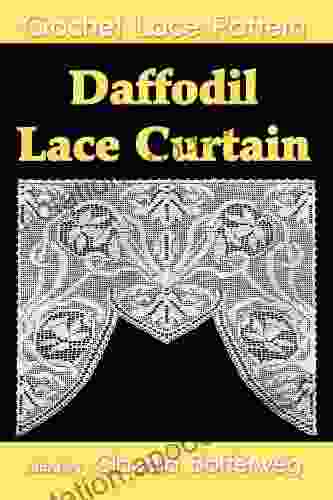
 Ralph Waldo Emerson
Ralph Waldo EmersonUnlock the Elegance of Daffodil Lace: An Immersive Guide...
: A Tapestry of Delicate...

 Gerald Parker
Gerald ParkerNever Lose An Argument Again: 20 Powerful Techniques From...
Are you tired of losing...

 Xavier Bell
Xavier BellSeven Animal Insertions Filet Crochet Pattern: Embark on...
Welcome to the captivating...

 Eugene Powell
Eugene PowellMagomago in TDS Magomago 12: An Unforgettable Adventure...
Step into the Enchanting World of...

 Marvin Hayes
Marvin HayesSoft Felting Needle Holder Excellence In Reborn Artistry
Unveiling the Secrets of the...
4 out of 5
| Language | : | English |
| File size | : | 1229 KB |
| Text-to-Speech | : | Enabled |
| Enhanced typesetting | : | Enabled |
| Print length | : | 181 pages |
| Screen Reader | : | Supported |
| X-Ray for textbooks | : | Enabled |


